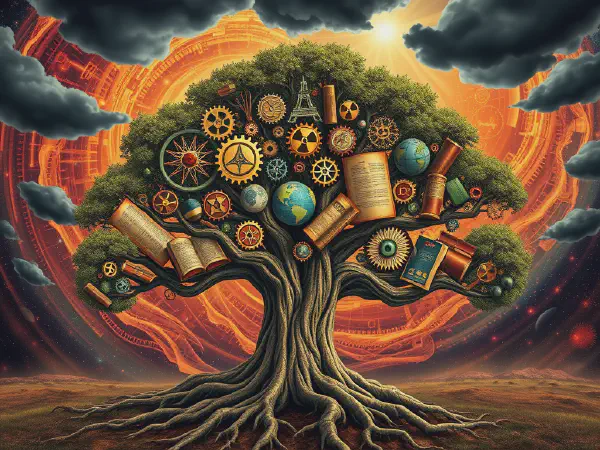Understanding the Ideologies of the LaRouche Movement

Understanding LaRouche Movement Ideologies
The LaRouche Movement Ideologies represent a complex and often controversial set of political beliefs centered around the thought and writings of Lyndon LaRouche. This movement emerged in the mid-20th century and has continued to evolve, drawing attention for its unique approach to economics, culture, and international relations.
At the core of LaRouche Movement Ideologies is the belief in the necessity of a coherent economic policy that prioritizes the general welfare of the population over short-term financial gains. LaRouche advocates for a return to a productive economy, emphasizing the role of scientific progress and the importance of technological advancement as a means to foster a prosperous society.
The cultural aspect of the LaRouche Movement Ideologies underscores the value of classical artistic traditions, which, according to LaRouche, are essential for cognitive development and the moral development of society. This connection between culture and education serves as a foundation for a society that can effectively address its economic and social challenges.
In terms of international relations, LaRouche Movement Ideologies champion the idea of a multipolar world where nations collaborate rather than compete. LaRouche argues against imperialism, advocating instead for policies that foster international cooperation and mutual development for all nations involved in the global community.
Overall, LaRouche Movement Ideologies are underpinned by a commitment to scientific progress, cultural enrichment, and a restructured approach to international governance, setting the stage for philosophical debates and political movements worldwide.
The influence of the LaRouche Movement on political discourse continues to provoke debate among scholars and activists.
Historical Context of the LaRouche Movement
The LaRouche Movement originated in the early 1970s with Lyndon LaRouche's establishment of the National Caucus of Labor Committees. This initial formation focused on labor rights and economic fairness, promoting various kinds of economic and political policy that aligned with LaRouche's visions of a socially just society.
Key figures in the LaRouche movement besides LaRouche himself include various activists, economists, and political theorists who have engaged with and promoted his ideologies over the years. Notable figures often include his running mates during several presidential campaigns and leaders of affiliated organizations advocating for LaRouche's political and economic theories.
The evolution of LaRouche's political theories has seen significant developments, particularly as the movement responded to changing global dynamics. From early labor-focused ideologies to a broader understanding that included national and international economic considerations, LaRouche's theories adapted over decades to address various political climates and crises.
Core Ideologies of the LaRouche Movement
Economic theories proposed by LaRouche advocate for a system that integrates scientific advancement with economic policymaking. LaRouche stresses the importance of creating a physical economy, where investment in infrastructure and technology becomes paramount. This contrasts sharply with prevailing neo-liberal economic policies that favor deregulation and speculative finance.
Culturally, the LaRouche Movement emphasizes the significance of classical music, arts, and poetry as foundational elements of a healthy society. LaRouche posits that cultural deprivation leads to societal decay, thus advocating for an education system that prioritizes classical education, artistic expression, and moral philosophy.
LaRouche's perspective on international relations is largely driven by a vision of global cooperation. He emphasizes the need for a new paradigm in international politics, one that eschews imperialistic ambitions, instead promoting a collaborative approach to tackle shared issues such as climatic change, economic collapse, and sustainable development.
Influence of the LaRouche Movement
The impact of the LaRouche Movement on American politics has been a point of contention and interest. Initially gaining traction in leftist and labor circles, the movement has carved out a niche that challenges mainstream political discourse and pushes for unconventional economic policies that resonate with a segment of the population disillusioned with traditional party frameworks.
Globally, the LaRouche Movement has cultivated connections with various political groups and sympathizers, including some in Europe and South America, aiming to propagate its ideologies beyond U.S. borders. This outreach has facilitated the movement's expansion and has instigated dialogues on economic reform in different contexts.
The influence of the LaRouche Movement can also be seen in various political movements that align with its anti-imperialist and pro-development stance. The movement has inspired new generations of activists, particularly those focused on economic justice and systemic reform.
Criticism and Controversies Surrounding LaRouche
Major criticisms from political analysts center around LaRouche's often unconventional theories and extremist rhetoric, which some have characterized as conspiratorial. Critics argue that many of his ideas lack empirical support and are derived from a worldview that can seem outlandish or disconnected from real-world politics.
Controversies related to cult accusations have also surrounded the LaRouche Movement, with some former members describing an authoritarian atmosphere and attributing cult-like behavior to LaRouche's leadership style. These controversies have fueled debates about the movement's structure and practices over the years.
Responses from LaRouche followers typically reject the cult accusations, asserting that the movement is a legitimate political movement promoting rational discourse informed by scientific understanding. They frame criticism as an attempt to silence alternative viewpoints in political debate.
Legacy and Future of the LaRouche Movement
Currently, the LaRouche Movement engages in various educational and activist efforts while maintaining a presence in certain political circles. The movement has adapted to new socio-political challenges, ensuring its ideologies remain relevant in contemporary discussions about economics and international relations.
Potential future directions for the LaRouche Movement may involve increased emphasis on educational outreach and the recruitment of younger activists who resonate with its core ideologies. This could pivot the movement towards addressing modern issues like climate change and digital economies in a way that stays true to LaRouche's vision.
The influence of the LaRouche Movement on younger generations is evident in the continuity of its philosophies in various activist spheres. As new global challenges arise, the movement’s adaptation and messages could inspire a fresh wave of political thought and action that aligns with LaRouche's foundational beliefs.
